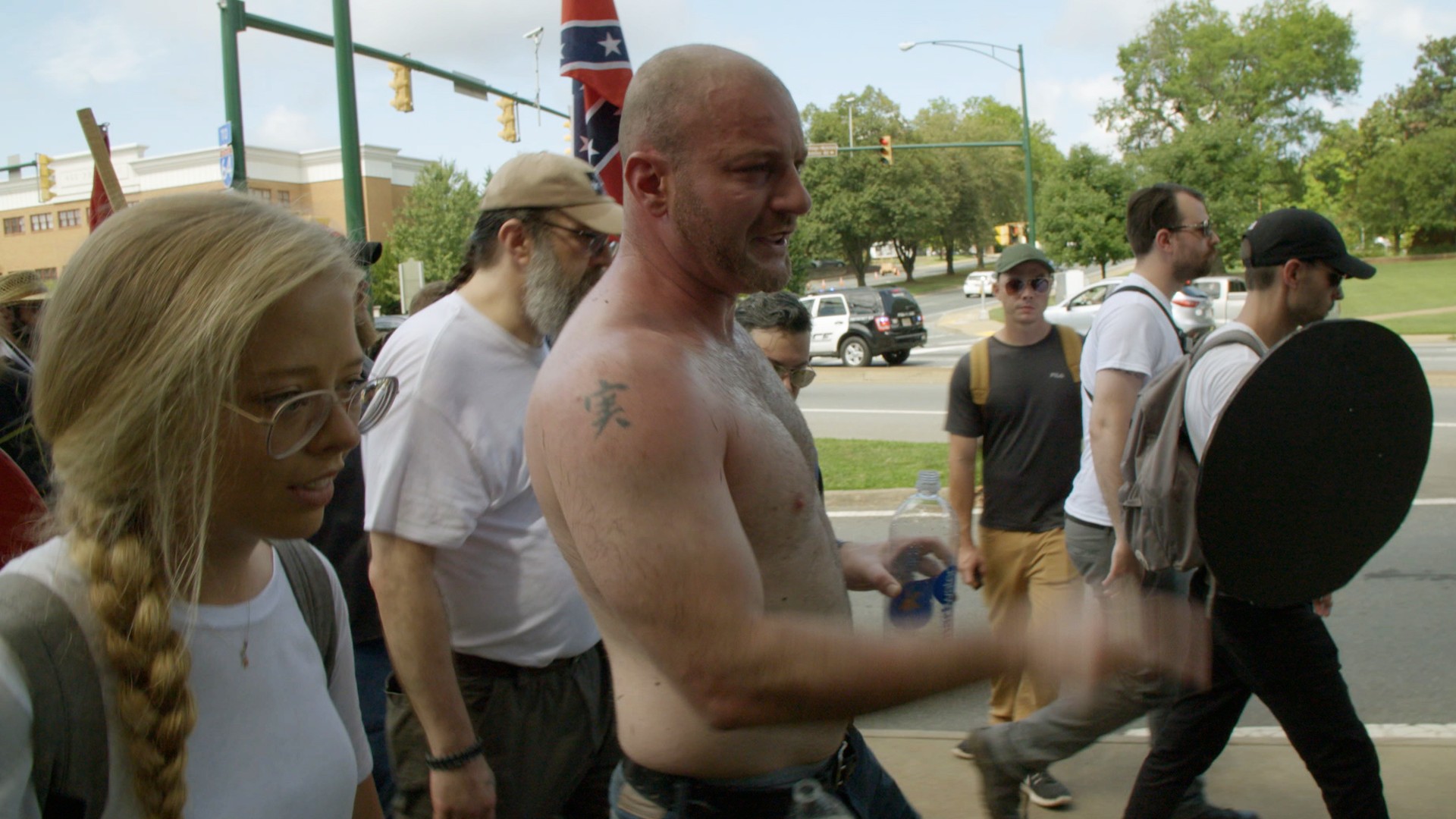Image via Twitter
The March to Confront White Supremacy is a 10-day non-violent demonstration and march from Charlottesville, Virginia to Washington, D.C. that kicked off on August 28. Organized in direct response to the Unite the Right rally in Charlottesville that claimed the life of 32-year-old anti-racist counter protester Heather Heyer, organizers from the Working Families Party, the Action Group Network, Our Revolution, United We Dream, Color of Change, the Women's March and several other organizations are leading the march. Longtime activist Mark Ruffalo joined in today, and numbers in the group are building as they gets closer to the nation's capital.
Many of the marchers are first-time activists who felt a need to do something in response to Charlottesville, and make it clear that hatred and bigotry will not stand in the US. After what many saw as a weak response to Charlottesville, targeting of DACA, and recent pardoning of notorious Maricopa County Sheriff Joe Arpaio, President Trump and his administration are a direct focus of the demonstrators but also aim to make definitive statement about the priorities of the country at a critical moment.VICE Impact caught up with activist and march leader Nelini Stamp, national organizing director for the economic justice group the Working Families Party, amid protest chants as the march was making its way through Madison, Virginia en route to D.C.VICE Impact: Why are you personally out marching?Nelini Stamp: I'm here because white supremacy has not ended in our country. We have a president that is sympathizing with Nazis. As a black woman I was always concerned about the state of our nation, but particularly now I'm doing this march -- this pilgrimage -- because we need to show people across the country that we need to reconcile with our white supremacist history.
Check out more videos from VICE:
You're a professional organizer, but what do you say to people out there who feel disempowered and disengaged right now?We've had lots of people come on this march who were in Charlottesville on August 12 and said that they felt hopeless. They didn't know if any of this stuff is going to work, but they still came out. For people that feel hopeless, you need to remember all the people whose struggle was far worse than ours. Think of all our ancestors that went through slavery or genocide. If they could end things like that, then we can also make a difference.
Advertisement
As someone who works for an economic justice organization, why is the march specifically relevant to those issues?It's particularly relevant right now because it's not only the work that we do but it's the work people have done for a very long time. We're standing on the shoulders of giants when our country seems to be going completely backwards, even with all the inequities that have already happened.
Check out more videos from VICE:

You're a professional organizer, but what do you say to people out there who feel disempowered and disengaged right now?We've had lots of people come on this march who were in Charlottesville on August 12 and said that they felt hopeless. They didn't know if any of this stuff is going to work, but they still came out. For people that feel hopeless, you need to remember all the people whose struggle was far worse than ours. Think of all our ancestors that went through slavery or genocide. If they could end things like that, then we can also make a difference.
Advertisement
When did you have that 'aha' moment about when you wanted to become an organizer?
The moment I wanted to organize was when somebody told me I could actually change the outcome of things I thought were out of my hands. I grew up working class, I couldn't afford to go to college. I was a high school dropout. I gave up a lot of hope in my life working minimum wage jobs for years. But then I saw minimum wage change. I realized things change slowly but surely. That's the moment for me.
When you think of the issues being represented in this march, what sticks out? What do you want to convey to people who are watching and a little confused about why this is happening?When I think about the issues that are highlighted, I think about the fact that all week we've been worried about DACA being taken away. We're thinking about those who don't have help in Houston. We think about the fact that there is supposed to be an injunction in Charlottesville about the Robert E. Lee statue.There are so many issues here and so much more that people are talking about. When we arrive in D.C. we're doing a sustained action right as the budget stuff starts to go off. If the Congress is going to put money into the border wall, more money for prison beds -- those are even more things to think about in that mind frame of saying black and brown folks need to suffer. Whether it's incarcerate them, deport them, or give them low wages.
What do you say to people feeling disconnected about what organizing is?Not many people on this march have ever organized or protested before. Think about how, say, the Civil Rights Act was passed. Did that just happen on its own? Nope. People know that there was an abolitionist movement, and then slavery was abolished. Did that happen on its own? No.
Organized people coming together helps make those kinds of shifts happen. So we have the ability to change what our circumstances are right now.